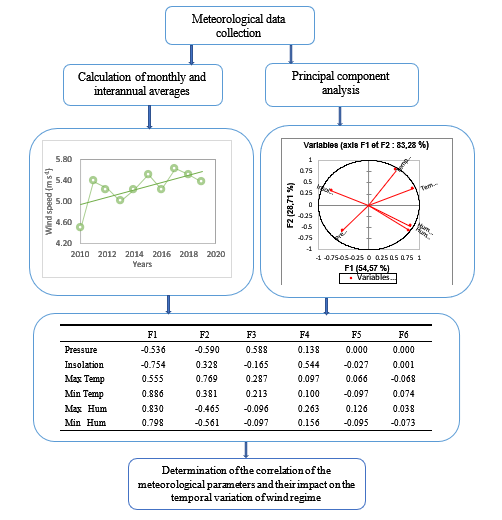
To assess the impact of climate change on wind regimes, we performed a statistical analysis of some meteorological parameters. Indeed, variables such as temperature, humidity, pressure, and insolation are rarely or not considered in the estimation of wind regimes and therefore in the characterization of wind sites. In setting wind farm projects, one is limited to assessing the wind potential with data that fluctuate greatly. In this work, we studied the influence of meteorological parameters on the wind regimes in the eastern part of Niger. We have firstly, based on data collected at the station of N'Guigmi, over 10 years, characterized each of the parameters by their monthly and interannual average. In a second step, we studied the interannual variability of these variables. At this level, the curves represented show large fluctuations. We then represented trend curves which showed us that during these ten years, humidity, insolation, and wind have undergone slight increases while temperature and pressure have significantly decreased. Finally, we used principal component analysis with the statistical tool XLSTAT to analyze the correlation of the different meteorological parameters on wind speed. The preponderance of the influence of each variable is evaluated from a factorial design provided by XLSTAT. Thus, after the analysis of the factorial design, we concluded that temperature is a preponderant factor in the wind flow. The second variable that conditions the wind flow is humidity. These results meet our expectations. Indeed, the wind being air in circulation, under a high temperature, its density decreases, and its circulation is facilitated. However, with humidity, it becomes heavier, and the wind circulates less quickly.
Total file downloads: 5